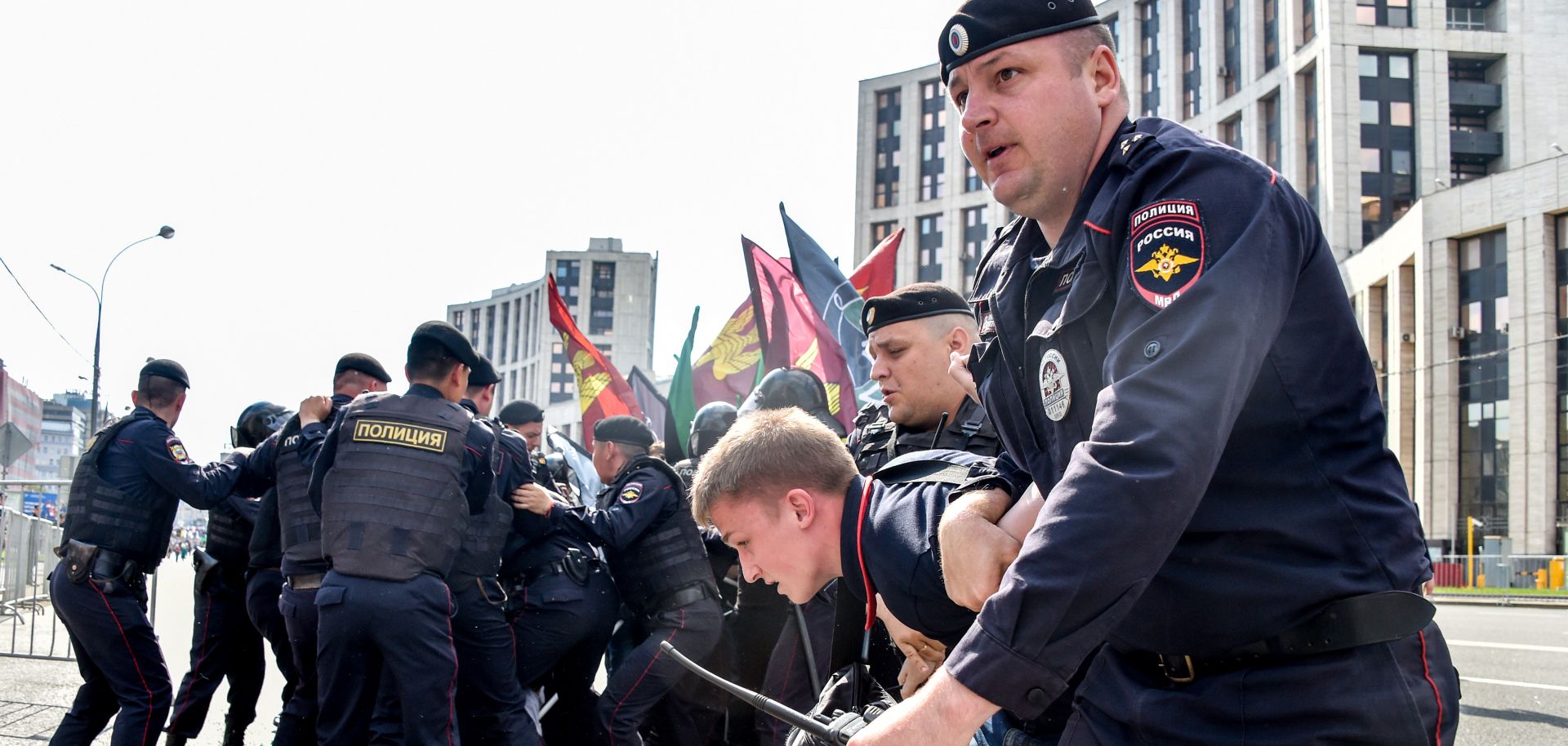ASSESSMENTS
Bending the Internet: Russia Catches Up on Internet Control
Jun 22, 2018 | 09:00 GMT

Russian riot police restrain a protester at a demonstration in Moscow in May over the Kremlin's decision to ban the messaging app Telegram.
(VASILY MAXIMOV/AFP/Getty Images)
Highlights
- After taking a hands-off approach to cyberspace in his first decade in office, Russian President Vladimir Putin has cracked down on internet use over the past few years.
- His administration has made it easier for authorities to suppress opposition movements online and to filter undesirable content by steadily empowering the Federal Service for the Supervision of Communications, Information Technology and Mass Media.
- It has also proposed the development of an alternative internet, demonstrating Russia's broader ambition to break from the traditional network model Western countries have long championed and dominated.
Subscribe Now
SubscribeAlready have an account?
